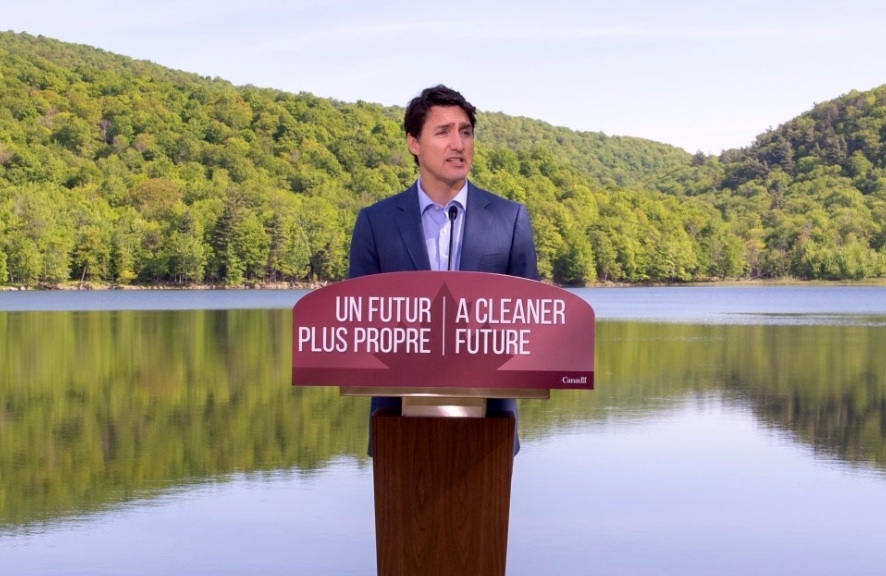Photo credit: YouTube.com
With the election right around the corner, Justin Trudeau conveniently announced the Liberal’s plan to ban single-use plastics. In doing so, he failed to answer a simple question, leading to a viral video.
When asked to touch on what his family does in order to reduce their use of plastic, Trudeau struggled to come up with an answer.
“Uh, we, uh, we have recently switched to drinking, uh, water bottles out of, uh, water out of, uh, when we have water bottles, uh, out of plastic, uh, sorry, away from plastic towards, uh, paper, um, like drink box water bottles sort of things.”
These “drink box water bottle sort of things” that he was referring to are priced much higher than the average water bottle. At $60.47 for a 24 pack of boxed water, these boxed waters are 24 times the price of a pack of regular water bottles from your local grocery store.
Another great way to help out the environment and save a few bucks at the same time is to take advantage of the fresh tap water available in your very own kitchen — which apparently is unheard of in the Trudeau household.
Realistically, boxed water is not as environmentally friendly as it seems.
According to the “Boxed Water” website, 74% of a single box is made from paper. Where the remaining material is made up of plastic and aluminum.
Although boxed water leaves less of a carbon footprint than plastic water bottles, the aluminum and plastic make it much harder to recycle, as it is less common that recycling facilities are able to separate products composed of both plastic, aluminum and paper.
While banning single-use plastics would ideally aid the environmental crisis across the globe, there are a few adverse effects on Canadians and their families that seems to be left out of the equation.
For instance, there are First Nations communities in Canada that are still living in conditions found in developing countries. Residents of Shoal Lake, covering Ontario and Manitoba, have been on a boil water advisory for over 19 years. In other words, they have no access to clean water within their community.
As First Nations communities struggle with underfunding, taking away affordable access to water such as a 24 pack of plastic water bottles priced at $2.50 at your local grocery store will affect such communities the most.
To most Canadian households clean drinking water straight from the tap is the norm, whereas to others it is a luxury.
The monetary burden that will be placed on not only First Nations communities, but also other Canadian families, must be recognized.
Another significant factor to take into consideration is the weight of the previously implemented carbon tax on the average Canadian family. Although this implementation has good intentions, the government is placing a heavy tax on everyday Canadians and then expecting them to not buy the cheapest clean-water drinking option.
Let’s start with access to clean drinking water for all communities, then move on to banning single-use plastic, or come up with a plan that addresses both issues at once.

